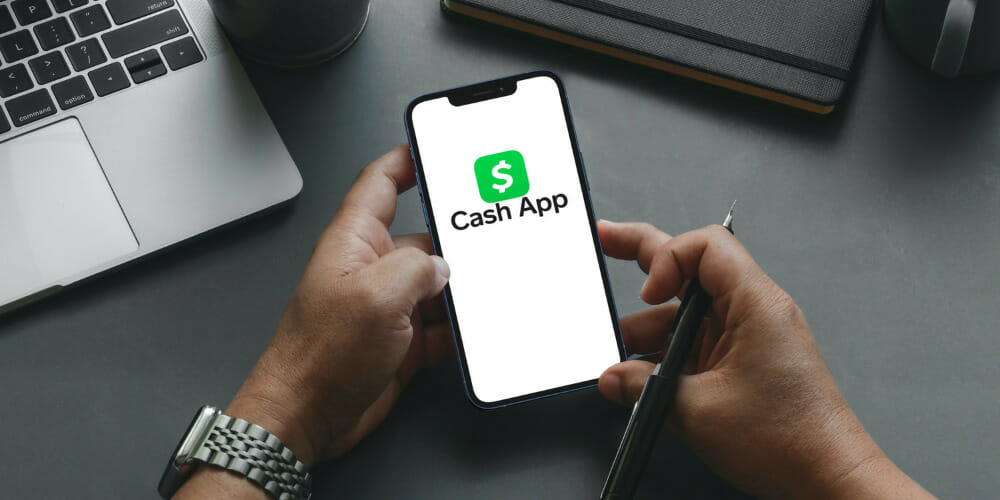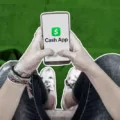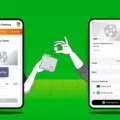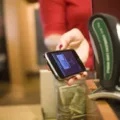When it comes to handling money through digital payment platforms like Cash App, understanding the process of temporary authorizations and payment holds is crucial. In this article, we will delve into the topic of how long money stays in Cash App and shed light on the various factors that affect the duration.
Temporary Authorization Holds: What You Need to Know
One aspect that affects the time money stays in Cash App is temporary authorization holds. These holds are often placed by merchants, such as gas stations or online retailers, to ensure that you have sufficient funds to cover your purchase. Gas stations, in particular, may impose a temporary authorization hold of up to $100 on your Cash Card.
The holds are typically released within 10 business days, and once the hold is lifted, the funds are automatically returned to your Cash App balance. It’s important to note that during this period, the held funds are not available for use, so it’s advisable to budget accordingly.
Payment Holds: A 14-Day Window
Another factor that affects the duration of money in Cash App is payment holds. When you send a payment to someone through Cash App, the recipient has 14 days to accept the payment. If they fail to do so within this timeframe, the payment will expire, and the money will be refunded to your Cash App balance.
During this 14-day period, the payment will remain pending, and you have the option to cancel it before it expires. It’s worth noting that once the payment is accepted, the funds are immediately transferred to the recipient’s Cash App account.
Refunds: The Waiting Game
Refunds are a common occurrence in financial transactions, and the same applies to Cash App. If a merchant initiates a refund for a transaction, it may take up to 10 business days for Cash App to receive the refund. However, it’s important to emphasize that locking your Cash Card or reporting it as missing/stolen will not affect the refund process.
Once Cash App receives the refund, the funds will automatically appear in your Cash App balance. It’s worth mentioning that the timing of refunds may vary depending on the specific circumstances, so it’s advisable to keep track of your transactions and reach out to Cash App support if needed.

How to Protect Your Money in Cash App?
While using Cash App offers convenience and ease of digital transactions, it’s important to be aware that the funds in your Cash App account are not protected by the Federal Deposit Insurance Corporation (FDIC) or the National Credit Union Administration (NCUA) like money in a bank or credit union. Therefore, it’s advisable to avoid leaving large amounts of money in your Cash App account for extended periods.
In addition to potential refund delays, keeping your money idle in Cash App means missing out on the opportunity to earn interest or other income that a traditional bank account might offer. It’s important to assess your financial needs and consider transferring excess funds to a bank account for added security and potential financial benefits.
The duration of money in Cash App can be affected by temporary authorization holds, payment holds, and refund processing times. Understanding these factors will help you better manage your finances and make informed decisions when using Cash App for your digital transactions.
How Long Does Cash App Hold Money?
Cash App typically holds money for a maximum of 10 business days. During this time, funds are temporarily held and unavailable for use. Once the hold is released, the funds will be automatically returned to your Cash App balance.
It is important to note that gas stations may also place a temporary authorization hold on your Cash Card for up to $100. This means that when you use your Cash Card to pay for gas, the gas station may temporarily deduct up to $100 from your account as a security measure. However, this hold is also typically released within 10 business days, and the funds will be returned to your Cash App balance.
Does Money Expire on Cash App?
Money sent through Cash App can expire if the recipient does not accept the payment within 14 days. During this time, the payment will be pending, and if it is not accepted within the specified period, it will expire. Once the payment expires, the money will be refunded to your Cash App balance.
It’s important to note that you have the option to cancel the payment before it expires. This can be useful if you change your mind or if the recipient is unable to accept the payment for any reason. By canceling the payment, you can prevent the money from expiring and ensure that it remains in your Cash App balance.
Is It OK to Leave Money in Cash App?
Leaving money in your Cash App account may not be the most ideal option. Here’s why:
1. Lack of FDIC or NCUA Protection: Unlike traditional banks or credit unions, Cash App does not offer the same level of protection for your funds. The money you leave in your Cash App account is not insured by the Federal Deposit Insurance Corporation (FDIC) or the National Credit Union Administration (NCUA). This means that if Cash App were to experience financial difficulties or go out of business, your funds may not be recoverable.
2. No Opportunity for Earning Interest: By keeping your money in a Cash App account, you miss out on the opportunity to earn interest or any other form of income. Banks and credit unions often offer interest-bearing accounts that allow your money to grow over time. With Cash App, your funds simply sit idle and do not generate any returns.
3. Potential Security Risks: While Cash App has implemented security measures to protect your account, there is always a risk of unauthorized access or potential scams. If someone gains access to your Cash App account, they could potentially withdraw or transfer your funds without your consent. It’s important to be vigilant and take necessary precautions to safeguard your account.
4. Limited Consumer Protections: Cash App operates as a peer-to-peer payment platform, and its primary focus is on facilitating transactions between users. As such, the consumer protections offered by Cash App may be limited compared to those provided by traditional financial institutions. If you encounter any issues, resolving disputes or recovering lost funds may not be as straightforward as with a bank or credit union.
Leaving money in your Cash App account may not be the most secure or financially beneficial option. It’s recommended to transfer your funds to a traditional bank or credit union where they can be protected by FDIC or NCUA insurance and potentially earn interest or other benefits.
How Long Do You Have to Get Your Money Back From Cash App?
When it comes to getting your money back from Cash App, the process can take up to 10 business days. This timeframe is applicable when a merchant initiates a refund for a transaction. It is important to note that locking your Cash Card or reporting it as missing or stolen will not affect your ability to receive a refund.
Once the refund is initiated by the merchant, it may take some time for Cash App to receive the funds. However, as soon as Cash App receives the refund, the money will automatically appear in your Cash App balance. So, you don’t need to worry about taking any additional steps to receive the refund.
Conclusion
Money plays a significant role in our lives, serving as a medium of exchange for goods and services. It provides us with the means to meet our basic needs, pursue our goals, and enjoy a certain level of comfort and security.
However, it is important to be mindful of how we manage and handle our money. Temporary authorizations and payment holds are common occurrences when using digital payment platforms such as Cash App. While these holds may be inconvenient, they are typically released within 10 business days, ensuring that your funds are returned to your account.
It’s also worth noting that leaving a large sum of money in digital payment platforms is not the same as having it in a bank or credit union. These platforms are not protected by the Federal Deposit Insurance Corp. or National Credit Union Administration, so it’s essential to exercise caution and consider transferring excess funds to a secure account where they can potentially earn interest.
Additionally, when it comes to receiving refunds, such as when a merchant refunds a transaction, it may take up to 10 business days for Cash App to process and credit the refund. However, locking your Cash Card or reporting it as missing/stolen will not hinder the refund process. As soon as Cash App receives the refund, the funds will automatically appear in your Cash App balance.
Understanding the ins and outs of how money works within digital payment platforms can help us make informed decisions and navigate any potential challenges that may arise. By staying informed and proactive, we can effectively manage our finances and make the most of our financial resources.








